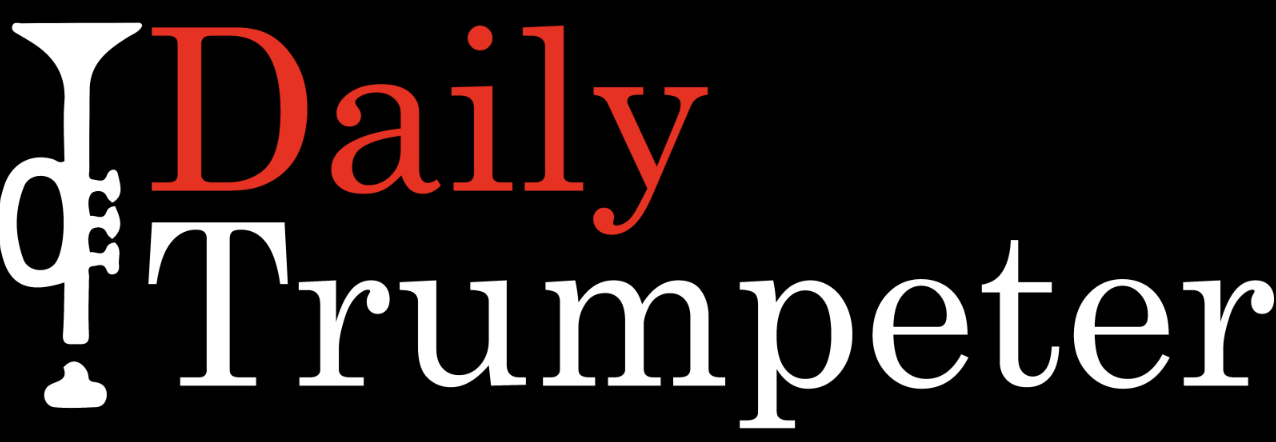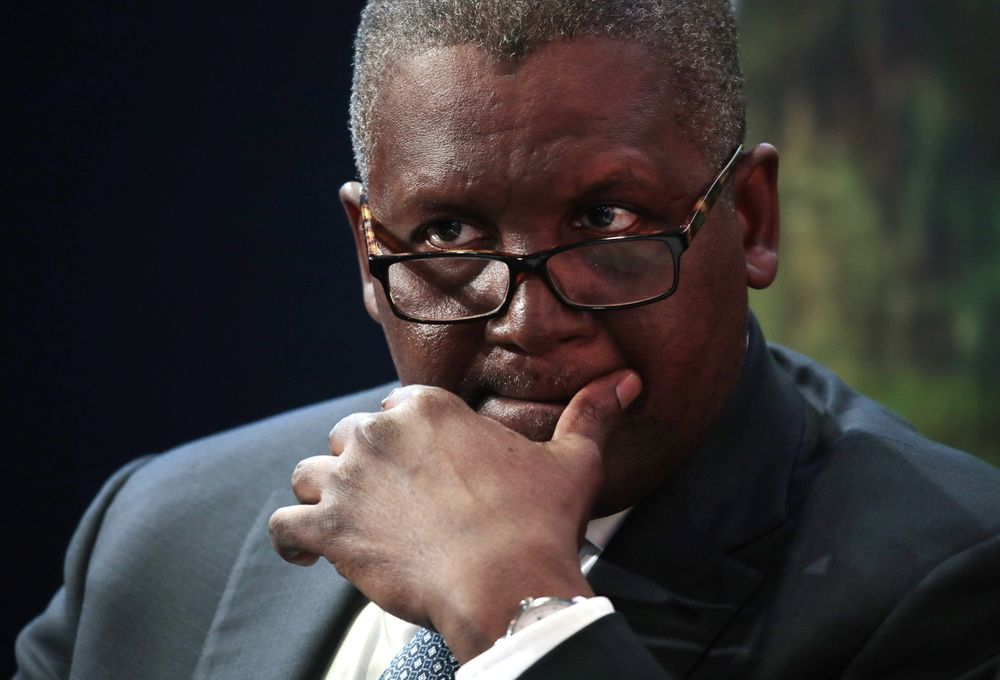Opinion
Festus Adedayo : Dangote, BUA’s destructive trade war
Yes, it is a season of claims and counter-claims. Yet, cost of living is hitting the roof. Hunger is pelting the bellies of both the righteous and the infidel. Living life is almost becoming a rocket science. Charles Soludo, luxuriating in public acclamation of “one of the most cerebral Central Bank of Nigeria (CBN) Governors,” is in his season of pontificating. Last week, he offered an escapist defence of the Nigerian establishment which citizens’ hunger could not penetrate. Soludo’s latest proffer for the people’s hunger is that the current government met a dead economy; a dead horse was his exact word. Permit me to extend that logic by borrowing British Prime Minister Rishi Sunak’s “just let people die,” and ask Soludo, “so let Nigerians die” because the economy inherited was a dead horse? Or, what is the final destination of that argument? There have since been attempts at economic necromancy. Every attempt must be made to make this economy’s corpse walk.

That is however not the drift of this piece. Two octopuses of Nigerian financial ocean are at daggers drawn at the moment and their destructive tiffs are rebounding negatively on the economy. Aliko Dangote of the famous Dangote Group and Abdul Samad Rabiu of BUA, two czars of the largest business entities in Nigeria, are fighting dirty. On the streets, in the courts and in the media, the two blue whales of the Nigerian economy are engaged in an acrimonious rivalry that is unexampled. A few weeks ago, that rivalry landed in the public space like a smelly puddle. The two of them openly washed their dirty linens, linens that had hitherto been wrapped in shawls of hushed whispers.
How does anyone describe this tiff, with its blood-baiting mutual exchange? A business rivalry, peer jealousy or business vulture tendency gone awry? It is a duel that has provoked such self-cancelling ruckus, the type found among co-wives in polygamy. An immediate correlation I can readily find to describe this is an autobiographical movie authored by Oyin Adejobi, late Yoruba cripple thespian. Adejobi was renowned for his famous African alternative dispute resolution drama sketches called Kootu Asipa of the 1980s. In it, he allegorized the story of how he became disabled. In Orogun Adedigba, (the wicked co-wife), Adejobi narrativized how his mother’s jealously wicked co-wife puffed up the fire of a destructive potion that immobilized him for life. That singular malediction became the burden Adejobi shouldered for his 74 years on earth. Though the Osogbo-born thespian’s stepmother’s potion succeeded in crippling him, it couldn’t stop the realization of his life’s attainment. Iconoclastic Yoruba Kennery brand music lord, Orlando Owomoyela (Owo’s) Itan Orogun Meji (the story of two co-wives) also explains the concept of a polygamous home’s squabbles which bear similar indicators to the Dangote and Rabiu self-neutralizing squabble.
Owomoyela, the nonconformist musician’s narrative goes thus: Two co-wives in a traditional African Yoruba home were engaged in spirited scuffles for the heart of their joint household. One day, the eldest wife conspired to kill the son of her co-wife, simply because he was more brilliant than hers. She cooked a portage delicacy served in two different plates. One, which was invitingly reddish and garnished with condiments, was sauced with a killer potion while the second plate, bereft of any poison, was whitish and uninviting. As the children of the two women arrived from school, they headed for the plates of food. While the son of the woman who hewn the death drama picked the reddish but poisoned plate, her stepson picked the one without. The malefactor’s son dies but the co-wife’s immediately went to the local football field and went a-playing football. Owo’s moral in the song is similar to that in Bob Marley’s Small Axe track. They both teach that anyone who contrives calamity for his fellow man can be compared to a man shouldering an army of ants-infested evil faggots which would soon bite them to death. Marley termed such evil-dispenser “whosoever diggeth a pit” who “shall fall in it.”
Attempts have been made to explain the Dangote/Rabiu rivalry and euphemize its deadly portent. In this regard, they say it is nothing outside the rivalries between Coke and Pepsi, Dunkin’ Donuts and Starbucks in America. This drift is expatiated upon by invoking the ghost of Adam Smith in his famous The Wealth of Nations. In it, Smith extolled the importance of competition to the public good and submitted that relentless competition is not only healthy but is a core principle of the market economy.
But what healthy rivalry would make two brothers, from same Kano State, involved in same line of businesses, not work towards to expand the frontiers of their markets but would rather seek their individual mutual destruction? While Dangote Cement is the largest cement product in Nigeria, controlling an over 60% market share, BUA Cement comes second, boasting of a market share of around 20%. Since 2008, the two companies have squared up in a bull’s fight. In the sugar refinery sector, the tango they are engulfed in is a fight of death as well. While Dangote’s sugar refinery, the most humongous in Nigeria, holds a market share of over 70%, BUA’s follows distantly with a market share hovering around 20%. It is this kind of duel you encounter in William Shakespeare plays where two armoured men clank swords in a battle that would only cease when one of them has breathed its last. It was always a duel on issue of honour or betrayal.
It is a common feature in this Dangote/Rabiu Orogun Adedigba tussle to hear of the two businessmen’s serpentine attempts to destroy each other. In 2020 for example, BUA Cement accused Dangote Cement of blocking access to its Edo State limestone quarry. Dangote Sugar Refinery responded to the alleged shenanigan by accusing BUA Sugar Refinery of price-fixing. They are both currently narrating details of these allegations before MiLords. The next year, BUA authored the wolf cry of alleging that Dangote Sugar Refinery had masterminded an attack on its sugar factory in Port Harcourt, Rivers State by sending hired thugs there. It also alleged that these hired hounds destroyed its property and inflicted massive injuries on its workers. Police were called in to ascertain the veracity or otherwise of the allegations. Rolled into this are also allegations that one of the two business sharks deployed debilitating political connections and favoritism steeped in graft to be granted waiver on import duties for cement. The ultimate aim, it was alleged, was to aid the stifling of competition.
The most recent of this cache of allegations and counter allegations came out in a press release early this month from Dangote. It accused BUA of masterminding what it called false allegation that it was being probed by the Jim Obazee Special Investigator. It alleged that its rival claimed it was involved in illegal foreign exchange deals and money laundering which allegedly had Godwin Emefiele’s Central Bank of Nigeria (CBN) as lead actor. In the said press release, the Dangote group decimated these allegations as spurious and a “rehash of a similar report peddled out of malice” since 2016.
BUA’s reply didn’t thaw the ice. It documented what it alleged were a myriad of acts of sabotage authored by Dangote against its operations. It also claimed that Dangote’s allegations were “very cheap attempts at blackmail… following months of sponsored campaigns of calumny against us.” Dangote’s concatenation of treacheries against it, alleged BUA, began from 1991, which later became “a ruse that would lead to a court-sanctioned freeze of our assets,” leading to a situation in which, “for three agonising months, our accounts were garnished, warehouses shuttered, and our spirit tested. Yet, from the ashes of deceit, BUA survived.” It also listed interventions by Late President Umaru Yar’Adua and Muhammadu Buhari whose timely reach prevented the octopodal hands of Dangote from sinking its company. BUA’s song looks very similar to the lyrics of Marley’s Small Axe song: “If you are the big tree, we are the small axe/ready to cut you down/And we are gonna cut you down!”
From all the above, it should be clear that what the duo of Dangote and his Kano brother are about is beyond the Adam Smith’s health-inherent competition, nor does it resemble in any way the Coke and Pepsi, Dunkin’ Donuts, Starbucks and Macdonald’s and Burger King competition. Those American competitions no doubt resembled Smith’s evergreen proffers in the Wealth of Nations. Not this. Many people reason that, buried inside this Dangote/Rabiu quarrel is an age-long particular issue-provoked enmity which the two are probably not ready to disclose to the public.
For Nigerian consumers of the duo’s products, this rivalry has potential benefits. A couple of months ago, BUA announced its intention to reduce the cost of cement to N3,500. Were the two friends, we would not have this people-centric riposte. The reduction in price received applauses all over Nigeria. For a shrewd businessman like Dangote for whom profit is king and not the customer, the BUA price reduction must be a scalpel to a wound. The enmity has continued regardless.
For the sectors where the two of them are major players, this inexplicable enmity has disastrous implications. Association with one must be equal to enmity with the other, an equation that is not healthy for business at all. I learnt that many top brass in the political and business spheres have attempted an armistice between Rabiu and Aliko, without any let. This affirms my earlier submission that the real reason for this rivalry may have been hidden from Nigerians.
No matter how the two business whales play out this squabble in the courts and the media, the street seems to have made up its mind on who to apportion blames. One of them is renowned with an Orogun Adedigba history of vulture-like business practices, seeking to and succeeding in swallowing the carcasses of its competitors. It is a whale that enjoys singular wallow inside the ocean and from the claws of its deadly grips, shrimps that attempted to grow have died premature deaths.
A requiem for my mother
Last Friday, November 24, around 1pm, I was getting pleased with myself for having scaled the hurdle of yet another chapter in a school dissertation I was writing when my phone rang. Before then, I sat cross-legged like someone who had just won tombola, thinking of further routes to take to arrive at the final destination of this academic obsession I wangled myself into. These days, when my younger brother called, I was always seized with trepidation. Thirteen years ago, September, 2010, to be precise, he had similarly called me. It was a dawn call. His wail on the phone ten years ago, I would soon know, would assume a sequential familiarity. He barely got the words through. Barely audible from his wail was the message: Our father, Joseph Adedayo, had just crossed to the other side of the divide. Now, as his call came through on Friday, my heart was in obvious turmoil. My mother, Victoria Ajoke, had been ailing for a while. So, I picked the call. The wailing on the other side was the uncommunicated communication I needed to affirm that I had finally received a pass into the orphanage; my gold had undergone everlasting rust. My brother was crying. I didn’t ask what the matter was. I got the message and ended the call. She was just a mere 77 years old girl.
Since Friday, I have not shed a tear. I have however worn a cloak of melancholy that I cannot explain. Like all mothers, Victoria Ajoke dotted on me, the child who opened her womb. These days, the suffusion of prayers she sprayed on me seemed to announce to me that she was preparing to shed the furs of mortality she wore. Like all mothers, she was excited seeing that little stubborn boy of hers, weaned on the apron of lack, become a man. A few weeks ago when I visited her in our family house at Oke-Ijebu in Akure, Ondo State, as frail and ailing as she was, she had a good laugh as we reminisced in what was going to be our last, on our journey thus far. I told her to get well quick so that I could take her to see a recent story of my life. I was afraid she might not. I remembered that my father too had, a few hours to the ailment that took him, wondered when my PhD defence would be, apparently for him to be the father of a ‘doctor’. Now, my hunch was right.
Some years ago, on a visit to Ilesa, Osun State, I branched at Ayeso barracks, with a friend. I stood in the front of a row of shanties that were the homes of policemen and pointed at one of them. That was where I grew, I announced to my friend. He bluntly told me I was lying. Nine of us, my parents inclusive, lived inside that dinghy cell-like apartment, I said.
While my mother and I reminisced, I reminded her of how far God had taken us. Indeed, like Bob Marley sang in his Talking blues, growing up, cold ground was our bed and rock, our pillow. Victoria Ajoke was a disciplinarian. When I tell my children, who hear Grandma now address me with so much respect, the story of how her lacerating cane wangled through my back, they found it hard to believe. Or, when she discovered I had stolen out of the proceeds of her plastic wares I hawked round Ikirun, Eko-Ende and Inisa those days to buy puff-puff. My cheeks suffered tremendously from her slaps.
She taught me the values I hold sacrosanct today. At dinner, all of us, her children, would circle round our bowl of eba or
amala meal. Woe betides whoever picked meat before the end of the meal. She would hit the back of your palm with such ferocity that you wouldn’t feel like eating again and you must not decline to eat further. That was insolence, the penalty of which was another slap. She would announce that you were greedy and a potential thief. Till today, when I sat with a collective to eat from the same plate, I am cheated because Mama taught me that meat eating was the last plate assignment. At dinner, she told us folklores and we loved to listen to the songs she sang to wedge home the morals of the stories. The one I still remember vividly was delivered in our Akure dialect. It was in the early 70s when the military government began executing armed robbers. “In m’eyin re t’okun, omo ke sare moto ko binrin binrin dana (let him face the firing squad; the child who robbed in the bid to own a motor vehicle).
When she thanked me profusely for taking care of her as her days thinned out, I wondered if she had forgotten her toils on me. My mother was an expert in frying gari and preparing cassava meal called fufu. Her fufu could last for weeks without gathering moist. Her proficiency came to bear in 1994 when I had to go study for a Master’s at the University of Ibadan, at a time my father had just retired and hunger was our most notorious companion. I would take her fufu, cocoyam and gari to my hostel and was known for my indigent life. A few years ago when I slumped into a financial distress, immediately my mother heard of it, she called me. A huge sum had just been allotted her from the proceeds of the sale of a paternal family inheritance. She handed everything to me so that I could solve my existential challenge. Such was the mother I lost on Friday.
When I remember her sacrifices for me, I remember Plato’s The Phaedo. It is one of the most ubiquitously read dialogues that was written by that ancient Greek philosopher. In it, Plato gave what is considered to be one of the most essential philosophical validations of the sweats of motherhood. Motherhood, said Plato, is not only about love, but “a selfless self-emptying for another, not because the child has earned or deserved it, but simply by the very fact of being the mother’s child.”
That was Victoria Ajoke, my mother, who lies alone right now in the morgue.
I will miss my mother immensely. It is such a painful separation of mother and her son. I will take solace in her blessed womb that held me for nine months and the lacerating whips from her cane that nurtured me to what I am today.
Adieu, Maami Victoria Ajoke.



















